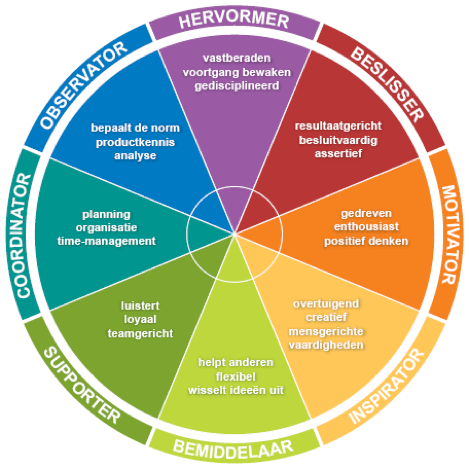Business Improvement
Are your employees, strategies, current corporate culture and processes in balance? The...

Personal development. It is deeply hidden in our character as humans. In 1943, Abraham Maslow published his motivation theory, which describes what drives people. His pyramid of needs is still used today. The desire to develop ourselves is innate and deeply anchored in our DNA. This is also evident from the large amount of research that has been conducted in this area. And yet within our companies we often fail to work effectively on personal development. Why not? And what can we do about it? We discuss that today in our blog.
You may already be familiar with Maslow's motivation theory. It describes our innate needs as humans, both private and business.

Research by Cubiks, conducted in 33 countries, shows that employees consider the opportunity to develop themselves even more important than a pay increase or extra vacation days. An unexpected outcome? Not if you look at Maslow's pyramid. When employees were asked which facet of personal development is considered most important, more than 45% indicated that deepening knowledge is number 1. This was followed by improving competencies, by 28%. So we prefer to dive into the content, which feels safer, than make ourselves vulnerable and work on personal areas for improvement. 'Only' 27% of employees indicate a career move as the main motivation for personal development.
Groupon is also making its contribution. Research by the deal site, conducted among more than 1.000 Dutch people, showed that no fewer than 90% of Dutch people describe personal development as very important. Young people in particular are very concerned with their development, as evidenced by the 100% score within this age group. Striking fact: young people consider personal development even more important than their appearance.
Despite the fact that it has been clearly demonstrated that personal development is at our core and is an important part of our lives, we often fail to deal effectively with personal development. For example, the same Groupon study that we just referred to shows that for 42% of respondents, money is a consideration for doing less personal development. Lack of time is in second place at 40%. So we feel that we have too little time to develop ourselves optimally, or we think that the investments required are too high. In our view, however, there is another very important reason why we often fail in effective personal development: self-knowledge! We rarely do a thorough personality assessment, even though it forms the basis for developing your own person.
The Chinese warlord Sun Tzu said it: 'know yourself and your opponent, then you will win every battle'. Knowing yourself is a rare but extremely important facet of personal development.
You can take various steps to get to know yourself or your employees. A common step is to draw up a personality profile. At Kenneth Smit, for example, we use the Insights Discovery learning system and profile. Insights Discovery is an accessible color model that provides insight into yourself and others. A strong basis for your personality profile and an impetus to function optimally.

Insights Discovery works with four basic colors that describe your personality type:
Every person has all four colors within them. However, it is the combination of colors that characterizes your unique personality. The colors refer to behavioral preferences and determine how a person reacts, thinks and acts.
Based on the color model, eight primary insight types can then be distinguished, to which strengths and pitfalls can be linked at a later stage, as well as the ideal role that you can fulfill within an organization.

Our advice: start the personal development process within your organization, which starts with examining the personalities within your team, so that an effective development plan can be drawn up for each person based on their personality profile.